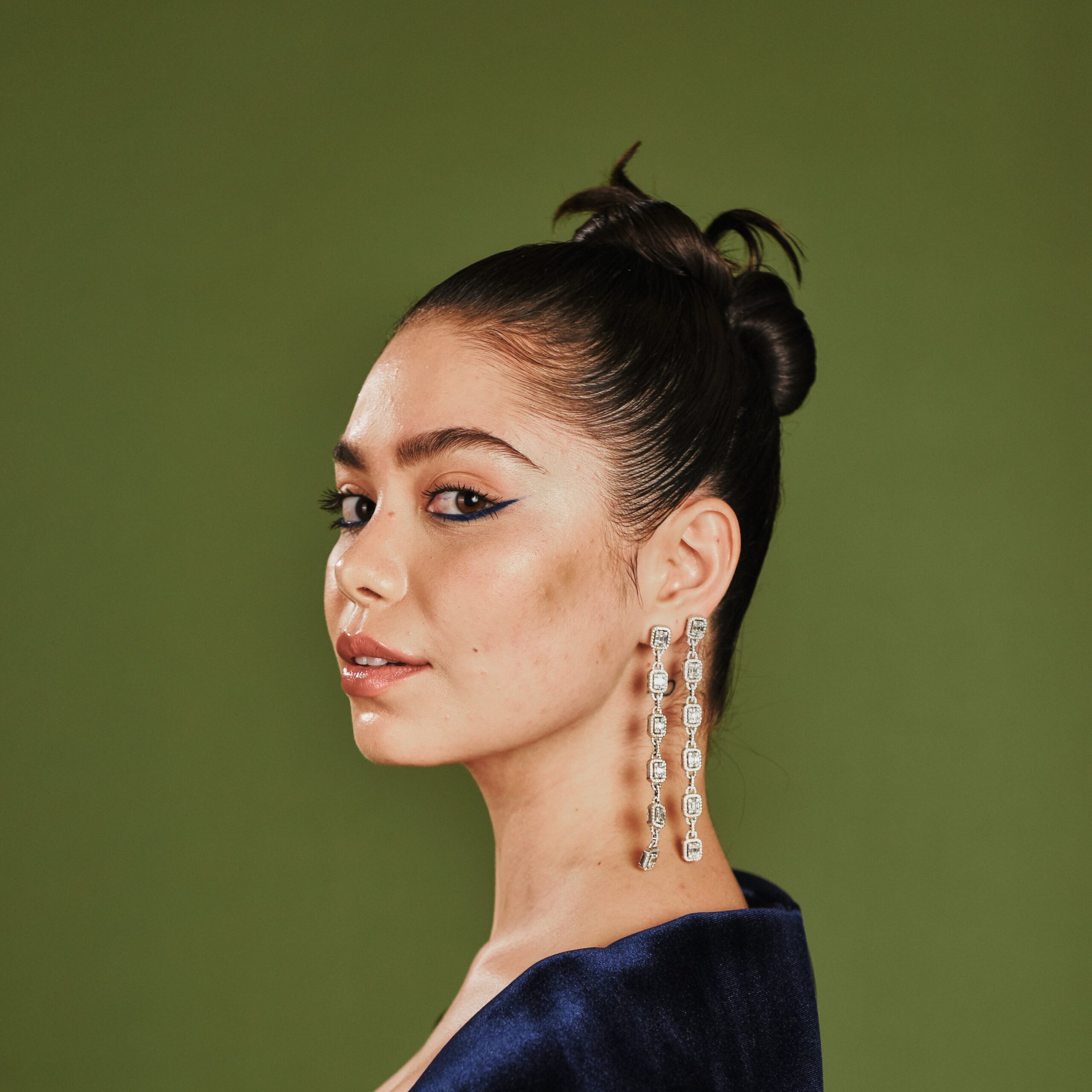
- POPSUGAR Australia
- Celebrity
- Auli’i Cravalho’s “Deep” Ties to Hawaii Are Why She Fights So Hard to Protect the Ocean
Auli’i Cravalho’s “Deep” Ties to Hawaii Are Why She Fights So Hard to Protect the Ocean

Auli’i Cravalho’s connection to the sea stretches back to long before she was born. “I can trace my mom’s lineage to the kings and queens of Hawaii,” she tells POPSUGAR. “My family really grew up at the beach. They went on camping trips to the beach, and they lived off of the ocean. They would go home like once or twice a week just to make a big pot of rice and do the laundry, and then come right back.”
As she was growing up, Cravalho – best known for voicing Moana in the very ocean-centric Disney movie of the same name – also spent a lot of time on the water while she was growing up: swimming, surfing, diving, competing in regattas, and more. Now, she wants to give back to and fight for the sea that’s given her and her family so much.
“Growing up in Hawaii, I have seen firsthand the impact climate change has had on our islands, whether that be rising sea levels or ocean acidification that affects the fish as the temperatures of our earth rise,” Cravalho says. She’s currently partnering with the cat food brand Sheba, which is working with the nonprofit Kuleana Coral Reefs to protect Hawaiian coral reefs. The statistics are dire – an estimated 25 percent of reefs have already disappeared worldwide, according to Planetary Coral Reef Foundation, and the remainder find themselves on the front lines of our current environmental catastrophe. “Climate change also leads to major coral bleaching,” Cravalho adds. “I think it’s important to note that scientists estimate that without intervention, 90 percent of the world’s tropical reefs will be gone by 2043.”
Reefs are hyper-visual casualties of climate change, and seeing one devoid of the colors and fish that make them so stunning is heart-wrenching. But the decline of coral reefs means a lot more than the loss of a visual wonder.
“Coral is a foundational species of our oceans, which means it really is the starting point for a lot of life,” says Cravalho, who has long been passionate about marine biology. “Coral is a living creature, and if we’re to talk about the ‘Finding Nemo’ of it all, for starfish and crabs and most importantly, fish, it’s a place that they call home. We’re seeing the deterioration of these reefs, [which also means the deterioration of] food production.” The loss weighs even heavier for people with connections to the ocean, Cravalho adds: “As someone who grew up in Hawaii, we also realize that it’s not only just about the food production. We also know that there is a deep spiritual, cultural, and generational significance to the oceans as well.”
Related: Dwayne Johnson’s Live-Action “Moana” Is Officially Coming in 2025
Fortunately, she says, there are many easy ways beachgoers can show some compassion to coral reefs and oceanic ecosystems. “A coral reef is a living creature. So touching or stepping on coral can harm or even kill it,” she says. She also advises swimmers to lay off sunscreens that contain oxybenzone and octinoxate, which Hawaii actually banned in 2021, and notes that there are plenty of reef-safe, mineral-based sunscreens that make great alternatives. In general, she adds, it’s important to leave natural areas the same way you found them.
Of course, small, individual changes won’t add up to enough to halt reef destruction or climate change entirely; that will only come from global action and systemic change, a fact Cravalho knows well. “I am Gen Z, so I often feel like I am inheriting an Earth that is on fire,” she says. And like many members of her generation, she has a long list of changes she wants to see in the world.
“I am very passionate about native rights for my fellow people in Hawaii, but also across Indigenous Canada, Indigenous America, and South America, as well,” she says. She’s also passionate about No More Stolen Sisters, an organization that raises awareness about the disproportionately high number of murdered and missing Indigenous women across the world. “I also am very passionate about clean water, whether that be ocean or drinkable water. And we haven’t even gotten into all the policies that I think America should be implementing,” she adds. Cravalho is openly queer, and she also wants to see changes in the way LGBTQ+ rights are handled in the United States and across the world.
She also knows how overwhelming all these issues can seem. When it comes to climate change in particular, “there’s jargon that I don’t understand, and there are simply so many big issues to try to tackle,” she says. But ultimately, she wants people to remember that many of these major issues are connected to larger systems of extraction, violence, and power, which means that their solutions can be connected, too.
“What I hope that our generation and the younger generation realizes is that you don’t have to just choose one issue,” she says. “I think that we should stay as aware as possible and as present as possible, as hard as that is. I know it’s quite hard, but we are the change that we want to see. And we are inheriting an Earth that is on fire.”
Related: Sasha Lane and Jayme Lawson Talk Going “Full Force” For Love in “How to Blow Up a Pipeline”

